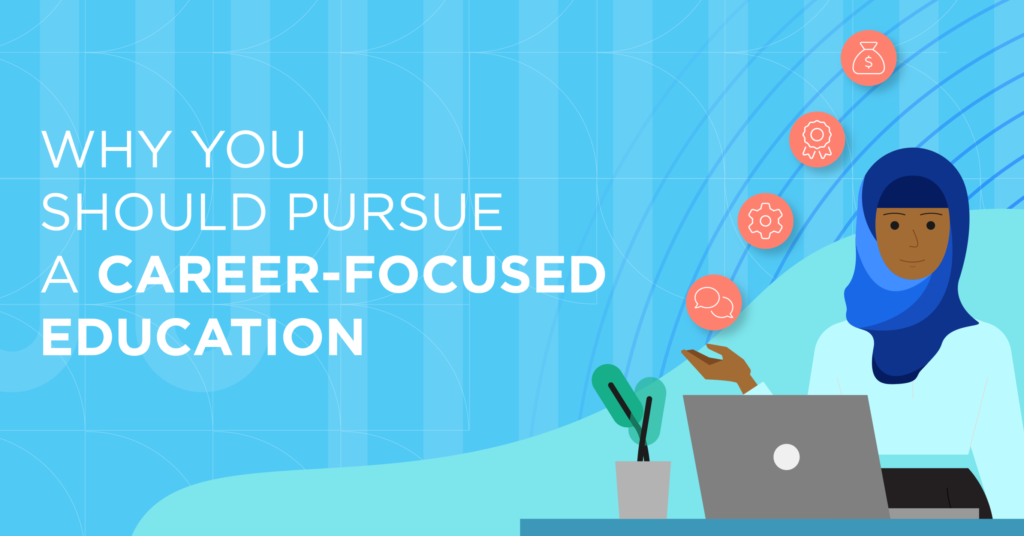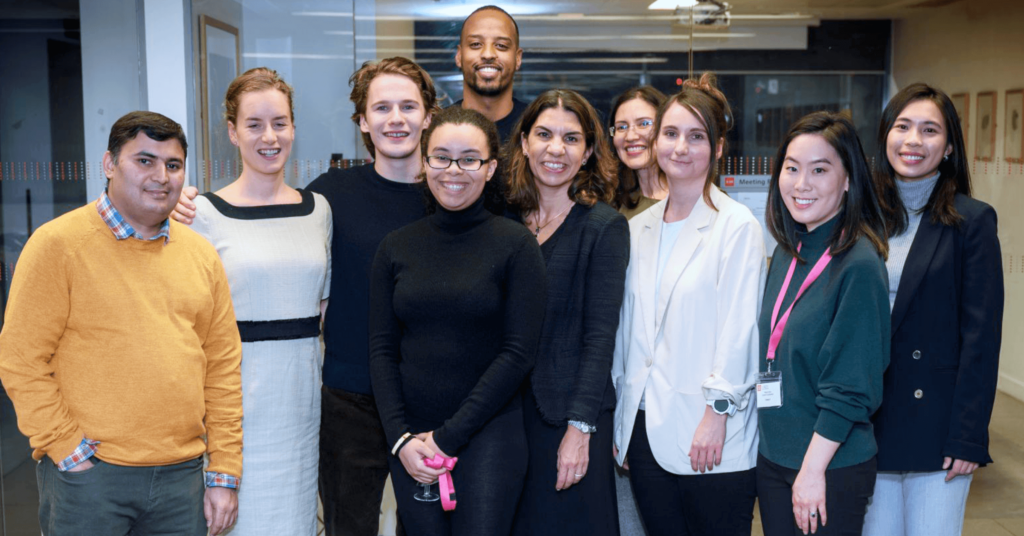
Tertiary education, as we know it, is undergoing a huge revolution. Traditional learning, where the focus is on the input rather than the outcome, is no longer effective in helping prospective employees navigate a changing world.
Prioritising the end goal of being employable, as opposed to just academically qualified, has given rise to a new teaching methodology that is career-focused, practical, and ongoing. The higher education institutions that embrace this are co-drivers of innovation that produce graduates who can adapt quickly, learn continuously, and keep pace with a technologically-agile workplace. These individuals have the technical skills needed to do their job and the soft skills, like creativity, problem-solving and critical thinking needed to navigate fast-changing landscapes.
Let’s take a closer look at why career-focused education is important, what it looks like in practise and how it could impact the future of education.
Traditional education isn’t doing enough for young graduates’ work-readiness
A study titled Early Careers Survey 2021: Jobs, Apprenticeships and Postgraduate Study by Prospects Luminate revealed the following insights about the challenges graduates are facing when searching for jobs:
- Many feel they don’t have the necessary work experience.
- Of those interested in apprenticeships, a quarter of students are struggling to find suitable opportunities in their area.
- 45% of university students and 36% of college/sixth-form students feel unprepared for work.
- A quarter of university students are considering postgraduate study, but costs and funding are major concerns.
These findings reveal that many students will have to do more than graduate with a qualification to gain the necessary professional experience – exposing a conundrum that is anecdotally true for many: Traditional education does not prepare people for employment.
As this becomes more apparent, many graduates have started seeking out career-focused learning as a progressive solution to close the gap. FourthRev’s Career Accelerators are an example of programmes that have been designed to equip learners – at various stages of their careers – with the technical, business and human skills they need to thrive in a digital skills role in just six months. With the support of a Career Coach and dedicated Success Manager, learners prioritise their career goals from the start and work through the programme with the focused intention of getting ahead professionally.
Until now, work and education have been seen as two largely separate spaces. You pursue an education to get a job, and while you might gain the knowledge you need to perform tasks, you aren’t fully prepared for the new reality that comes with being a working professional. A career-focused education will set you up with the various tools you need to put what you learn into practise so that you have a better idea of how your learnings translate in the real world.
A closer look at practical learning
Practical learning focuses on helping students put learned academic theories into practise. The primary objective revolves around practical skills development and teaches students the following core competencies:
- The relationship between theory and practise
- A fundamental understanding of how to execute their jobs
- Problem-solving and teamwork
- How to think critically, analyse problems, and come up with solutions
The Association for Talent Development suggests a 55-25-20 learning framework will best support the workforce – especially a virtual one – in the coming years. This blended approach comprises 55% practical, 25% social, and 20% formal learning.
Capstone projects are a great example of how this blended model works and the positive results it can yield by mimicking a real-life working culture. FourthRev’s Career Accelerators follow a project-based learning approach, where every course is underpinned by a practical assignment, with the final submission being an Employer Project that learners work on as part of a group. They are tasked with using the range of skills they have developed during the programme to solve a real business problem, set by an employer partner. Thanks to the diverse learning approaches and perspectives, capstone projects – like the Employer Project – allow learners to acquire a wide range of skills, including critical, creative, and strategic thinking, teamwork, effective communication, problem-solving and research analysis.
Keeping your skills relevant is something you have to work on throughout your career
Clare Bartlett, FourthRev Career Coach and Community Manager, explains that career-focused learning is equally relevant for people in the midst of their careers – especially for those in the tech sector.
“Tech is a fast-evolving sector, and as new technologies are developed, organisations look for people with up-to-date skills. We see that when people work using a particular skill set, they need to be aware of the new tools being used in the wider sector. Without this, their skills will quickly become outdated, and they could be replaced by people with up-to-date skills and knowledge who are coming into the market.’
This, she says, leads to reduced growth opportunities for existing employees and, in the worst-case scenario, may deem certain skill sets obsolete. Continuous learning, however, ensures employees are up-to-date on the latest tech changes and ways of working and able to bring a fresh sense of innovation to the business.
Clare says: ‘As these new tools and technologies grow, the demand for people with skills in these areas grows as well. Essentially, if you continue to learn, you will continue to be in demand.’
Ready to start your career-focused education?
When looking for the ideal course that equips you with the knowledge to hit the ground running in your next job, Clare suggests you first determine your skills gaps by comparing where you are now to where you want to be. It may be that you need to brush up on your technical skills, such as AI or machine learning, or master financial analytics. Or, you may need help in developing your personal leadership or critical thinking skills. A course that closes as many of these skills gaps is going to be the one that’s right for you.
If you think our Career Accelerators might be the right choice for you, reach out to one of our friendly Enrolment Advisors to discuss where you’re at and where you’d like to go. They’ll give you more information too about how our Career Coaches and Success Managers can enable you to harness your transferable skills and keep you on track to meet your present and future career goals.
- Book a call with an advisor on the King’s Product Management Career Accelerator
- Book a call with an advisor on the LSE Data Analytics Career Accelerator



